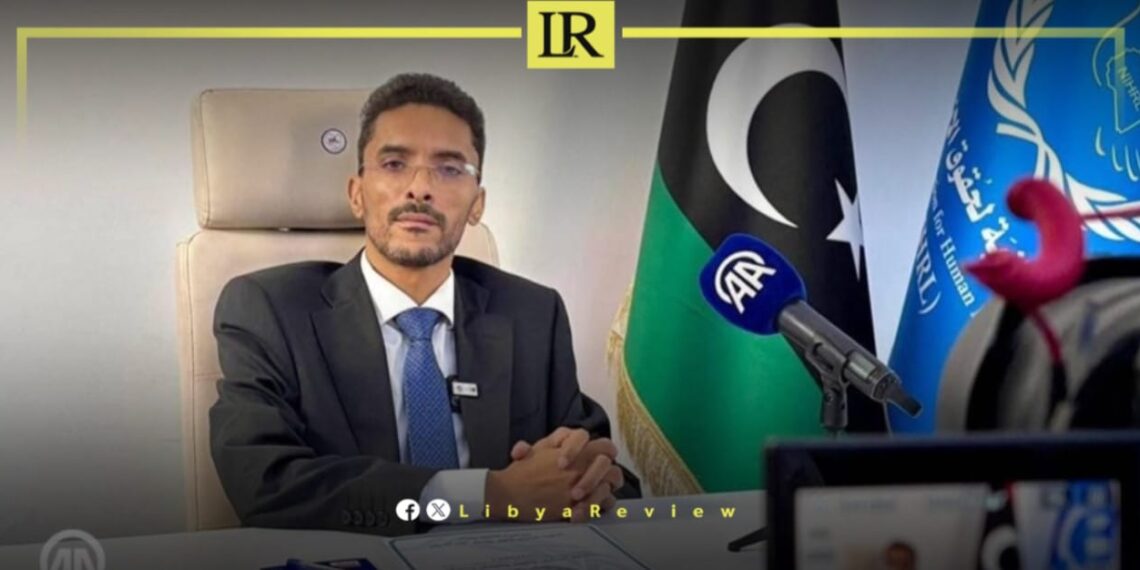The National Institution for Human Rights in Libya (NIHRL) has raised concerns over alleged abuses against migrants held in Libyan detention centres, warning that some violations amount to human trafficking.
Speaking to Anadolu Agency, NIHRL Chairman Ahmed Hamza said that Libya’s reliance on a strictly security-based approach to irregular migration has failed for over two decades. He described migration as a complex issue with humanitarian, legal and human rights dimensions that require more comprehensive solutions.
Hamza stressed that combating irregular migration must start by securing Libya’s southern border, which remains a key entry point, and end with the interception of migrant boats in the Mediterranean. However, he noted that focusing solely on enforcement ignores the broader human rights challenges migrants face inside the country.
“Calls to reject the settlement of migrants and foreigners, including Palestinians, may be legitimate,” Hamza stated, “but such rhetoric can never justify violence or attacks against them.”
The NIHRL chief highlighted evidence of serious violations in at least two detention facilities, where migrants were reportedly subjected to extortion. According to Hamza, some migrants were forced to pay sums of money to secure their release, practices that fall under international definitions of human trafficking.
Rights groups have repeatedly criticised Libya’s treatment of migrants, pointing to overcrowded centres, poor living conditions, and reports of abuse by guards and militias. International organisations, including the UN, have called on Libyan authorities to close these facilities and adopt alternative approaches in line with international human rights standards.
Hamza reiterated that Libya must adopt policies rooted in dignity and legality, urging stronger oversight of detention practices and closer cooperation with international partners to tackle smuggling networks.


